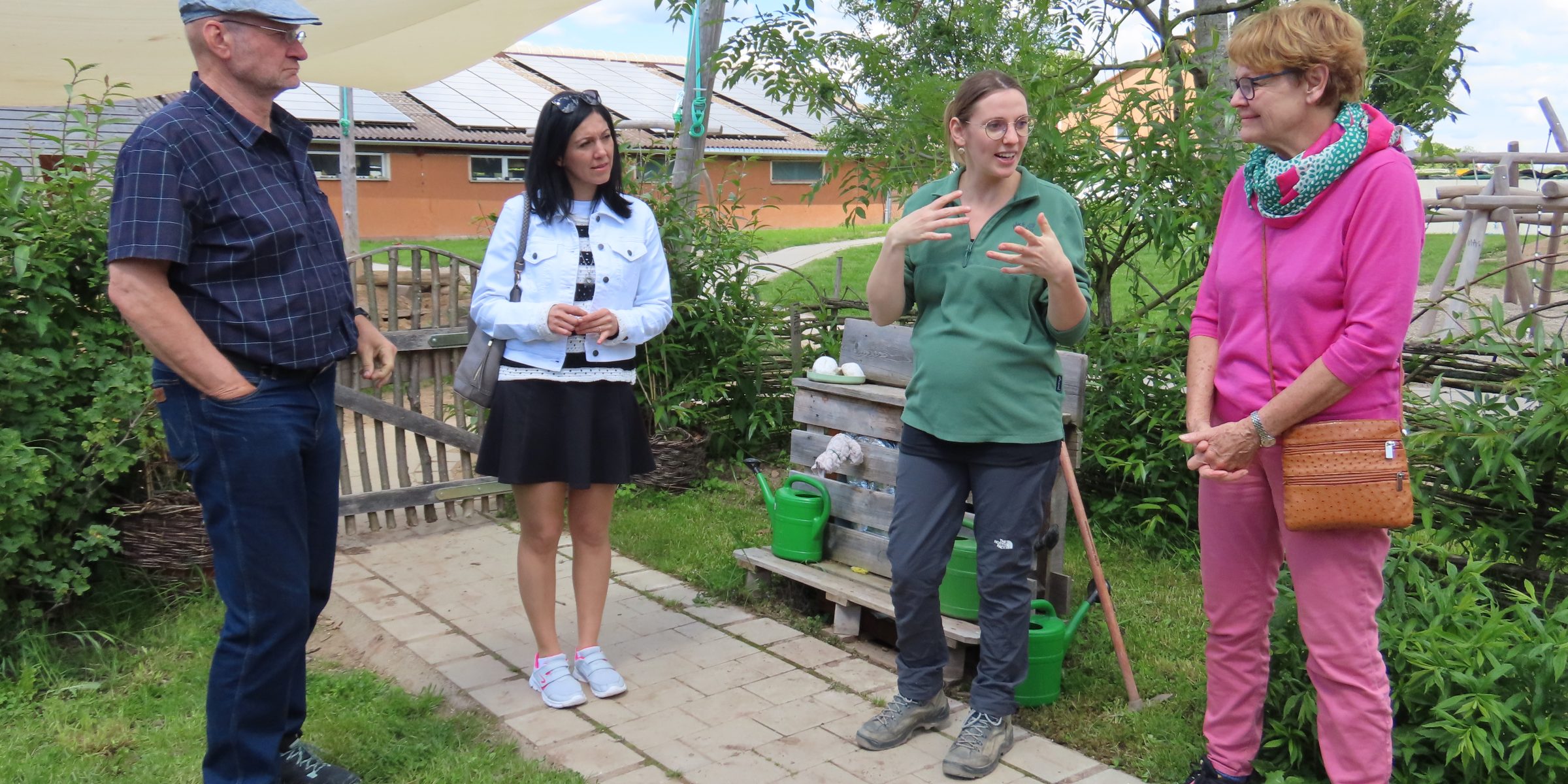In recent years, social agriculture has emerged as a vital approach to bolster the economic resilience of rural families and our visit to Bavaria provided several examples of this process. This innovative concept blends agricultural practices with social and community-focused activities, providing not only food and resources but also a range of additional benefits that extend beyond traditional farming. By embracing social agriculture, rural families can diversify their incomes, enhance their quality of life, and contribute to the sustainable development of their communities.
Income Diversification through Social Agriculture
- Direct Sales and Value-Added Products: One of the primary ways social agriculture contributes to income diversification is through the direct sale of farm products. Farmers can sell fresh produce, organic fruits and vegetables, and value-added products such as jams, cheeses, and herbal teas. These products often command premium prices, especially when marketed as locally grown or organic.
- Agri-Tourism and Educational Visits: Rural areas have a unique charm that can attract visitors seeking authentic agricultural experiences. By opening their farms to tourists, families can generate additional income through farm stays, guided tours, and hands-on workshops. These activities not only provide a supplementary income stream but also educate the public about sustainable farming practices and the importance of local food systems.
- Therapeutic Services and Social Programmes: Social agriculture offers therapeutic services that cater to various groups, such as individuals with mental health issues, learning disabilities, or those recovering from trauma. By providing these services, farms can receive funding from health and social care budgets. Additionally, partnerships with local authorities and non-profit organisations can open up new funding avenues and create stable income sources.
- Community Supported Agriculture: (CSA) Community Supported Agriculture (CSA) schemes are another excellent example of how social agriculture can boost family incomes. In a CSA model, community members purchase shares of the farm’s harvest in advance. This not only ensures a steady cash flow for the farmers but also fosters a strong connection between producers and consumers. It creates a sense of shared responsibility and mutual benefit.
- Workshops and Skill Development: Hosting workshops and training sessions on topics such as organic farming, beekeeping, and traditional crafts can provide additional income. These educational activities can attract participants from both local and urban areas, eager to learn new skills and reconnect with nature.
The Role of Women Entrepreneurs in Social Agriculture
Women have traditionally played a crucial role in agriculture, particularly in rural settings. However, their contributions often go unrecognised and undervalued. Social agriculture offers a platform for women entrepreneurs to shine, leveraging their unique skills and perspectives to drive economic and social benefits for their families and communities.
Women in rural areas are increasingly taking on leadership roles within social agriculture projects. By leading initiatives such as organic farming cooperatives, educational programmes, and therapeutic services, women entrepreneurs can innovate and implement sustainable practices that benefit their entire community. Their leadership often brings a focus on collaboration and community welfare, fostering a supportive environment for social agriculture to thrive.
Moreover, social agriculture provides women with opportunities to generate income independently. By creating value-added products, running agri-tourism ventures, and offering workshops, women can develop new revenue streams. This economic empowerment helps improve their families‘ financial stability and provides them with greater autonomy and decision-making power within their households.
Women-led social agriculture projects often prioritise education and skill development. By organising training sessions on sustainable farming techniques, craft-making, and food processing, women entrepreneurs can enhance their own skills while also providing valuable learning opportunities for others in the community. This focus on education helps build a more knowledgeable and capable rural workforce.
Women are natural community builders, and their involvement in social agriculture can strengthen social ties and promote inclusivity. By engaging diverse groups in agricultural activities, women entrepreneurs can create a sense of belonging and mutual support. This community cohesion is essential for the long-term success of social agriculture projects.
The Broader Impact on Rural Communities
Beyond income diversification, social agriculture contributes to the broader social and economic fabric of rural areas. It helps reduce social isolation by fostering community engagement and providing meaningful activities for diverse groups. This, in turn, strengthens community ties and promotes social inclusion.
Moreover, social agriculture encourages sustainable farming practices, which are crucial for environmental conservation. By adopting organic and regenerative methods, these farms play a pivotal role in preserving biodiversity, enhancing soil health, and reducing carbon footprints.
Social agriculture represents a transformative approach to rural development. By integrating social and community-focused activities with traditional farming, it offers numerous opportunities for income diversification. Rural families can benefit financially while also contributing to the well-being and sustainability of their communities. As more people recognise the value of social agriculture, its potential to transform rural economies and improve lives will continue to grow. Embracing this innovative model, with a particular emphasis on empowering women entrepreneurs, could be a key step towards a more resilient and inclusive future for rural areas.

